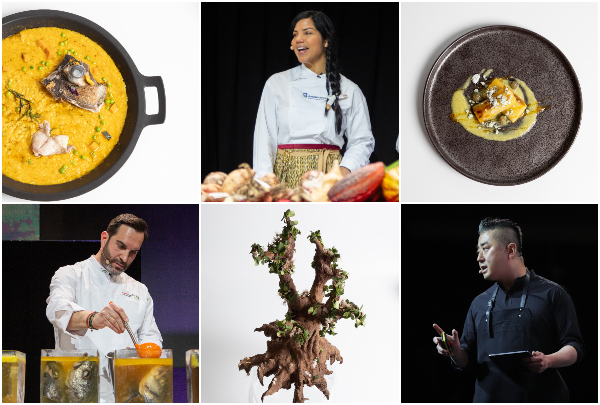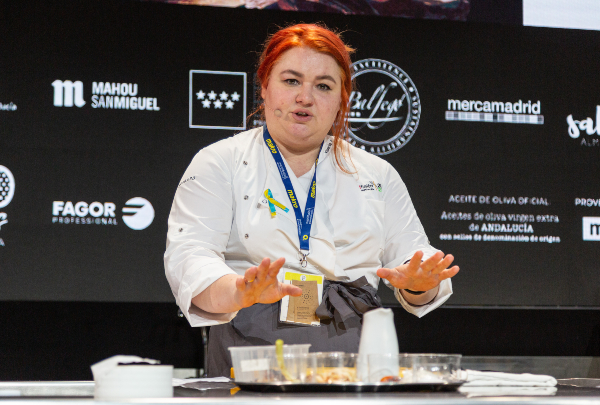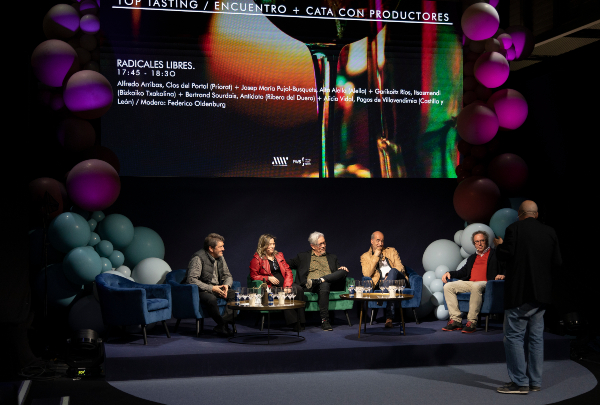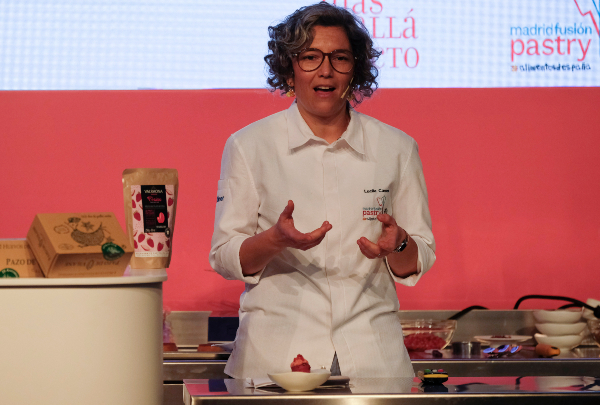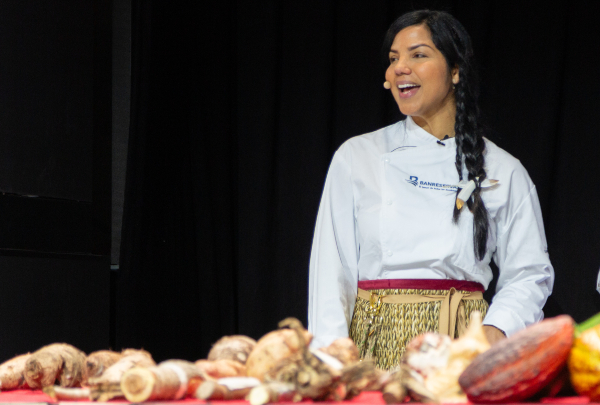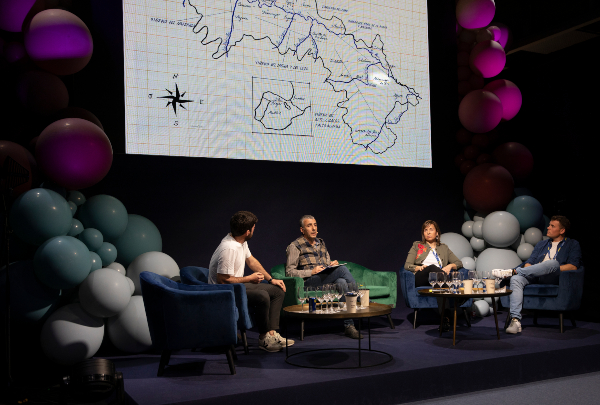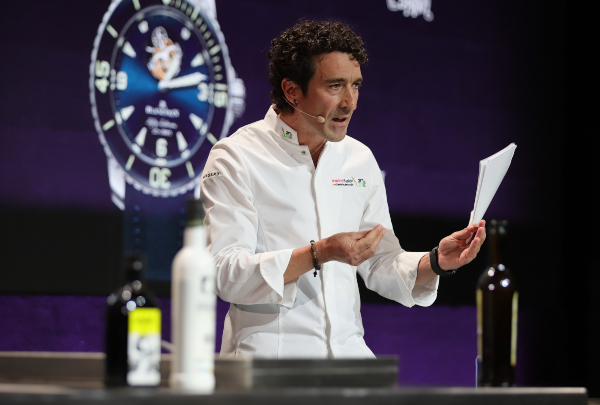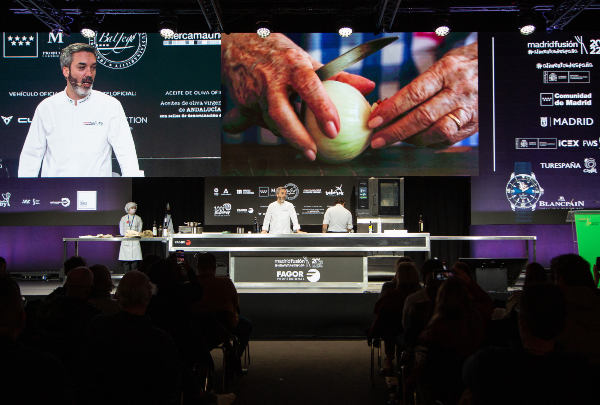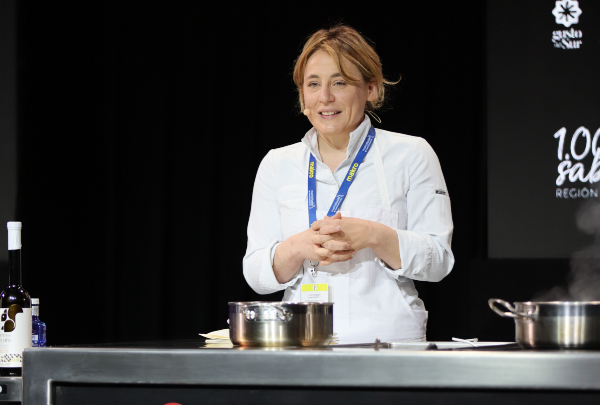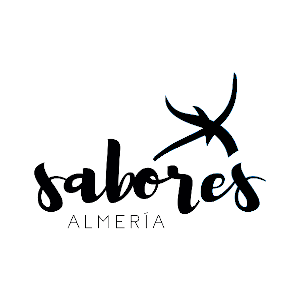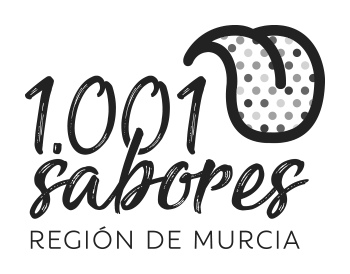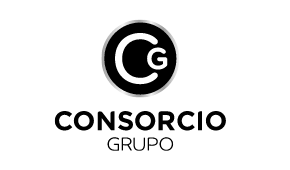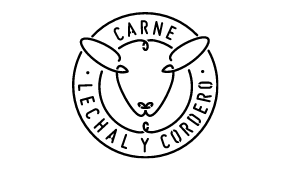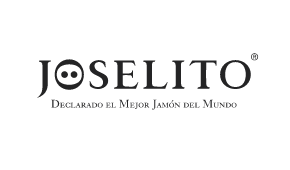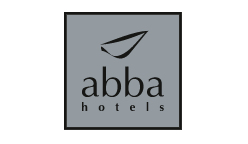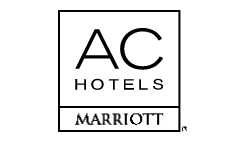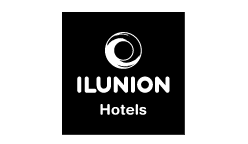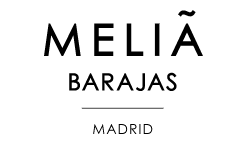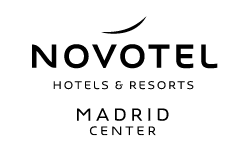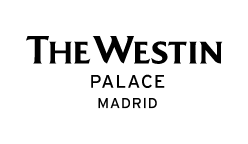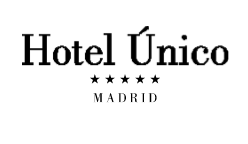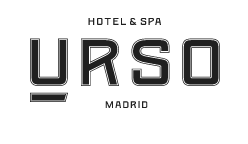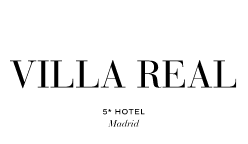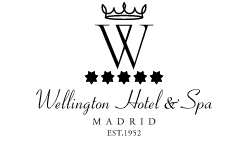News
Pushing boundaries and driving innovation the theme on day two of Madrid Fusión
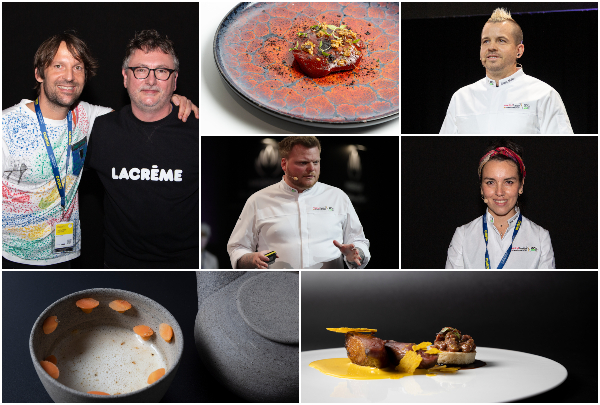
Two of the architects of modern gastronomy, René Redzepi, Noma*** and Andoni Luis Aduriz, Mugaritz** came together in a dialogue about cooking and creativity.
Familiar faces returned to Madrid Fusión Alimentos de España on day two of the congress while the important gastronomy event continued its long tradition of welcoming new talent to share their ideas during presentations.
The second day of the 20th anniversary celebration also saw an unprecedented meeting between two of the architects of modern cuisine as René Redzepi of Noma***, currently the holder of the World’s Best Restaurant title, and Andoni Luis Aduriz of Mugaritz**.
in a session called An encounter of thoughts, the two chefs, united in their quest for progress and innovation, discussed philosophy around cooking, their restaurants and gastronomy in a changing world. In a Q&A format, Aduriz asked Redzepi questions on everything from leadership and dealing with criticism to the pioneering of fermentation at Noma.
“Innovation is moving forward. You must create an environment where people can make mistakes, even if they make you angry, that is how you learn. My life is centred around learning new things all the time, reading books and learning about new ideas and transmitting these to the team. Opening your mind is key to everything. If you can do that, you’ll see opportunities everywhere,” said René Redzepi.
The Danish chef was also presented with the 2022 award for European Chef of the Year.
Earlier in the day Atsushi Tanaka, recently awarded his first star by the Michelin Guide in France in restaurant AT in Paris, demonstrated a simple and refined approach to cooking in his presentation Aesthetics that make sense.
The Japanese native, who was inspired to become a chef by French icon Pierre Gagnaire, also pointed to learning experiences in Spain, Belgium and Scandinavia as major reference points during a session that saw him cooking five dishes from a seafood-centric menu, using mussels, oysters, abalone, sea urchins and scallop.
“These are all simple, minimalist plates with a lot of flavour and that’s why I love them. I don’t want to make any dish too heavy when we serve a tasting menu with many stages, for me it is very important the dishes are soft with a lot of flavour.”
Andreas Krolik of Lafleur in Frankfurt** was the first chef in Europe to offer a vegan tasting menu in his restaurant when he introduced it in 2014. In his presentation The end and the beginning: one dish two seasons the German demonstrated the ingredient-focused zero-waste approach he implements in his kitchen as he prepared a dish of textures of Jerusalem artichoke.
Krolik said offering a vegan menu is not ideology, but simply a reflection of contemporary life. Eight years after introducing the vegan offer, 30% of diners choose this option when dining in Lafleur.
“It is not easy to achieve the same flavours that you find in meat and we are very proud that 30% choose our vegan menu. This is a beautiful journey we have been on; to offer these flavours while also doing good for the environment.”
Madrid born chef Dabiz Muñoz of DiverXO, the only restaurant in the Spanish capital to hold three Michelin stars, returned to the stage where he was named breakthrough chef in 2008.
Muñoz shared future plans with the conference as he talked about his next concept to open, RavioXo, which will be a pasta-focused restaurant and will feature his singular approach to dumplings that have been a mainstay of the DiverXO menu since opening.
He also talked about plans to move DiverXO to a new location in 2024
In an unusual presentation titled Let me ask you a question, he answered live questions from the audience, covering everything from the keeping creativity alive to prices in his restaurant, a source of some discussion when they increased.
“I decided to increase the price of the menu and people can decide if they want to pay it.
DiverXO had been losing money for 15 years and we wanted to improve the lives of the people who work there. We didn’t want to lose quality of the food, so we put up the prices. If people don’t want to come and pay for that then maybe DiverXO shouldn’t exist.”
Bringing his immersive dining experience to Madrid Fusión, Rasmus Munk of Alchemist restaurant in Copenhagen, talked through his concept during a presentation titled Changing the world through gastronomy.
Experience is everything at Alchemist where Munk combines gastronomy with art and visual design in the restaurant to create a memorable dining experience while attempting to convey important social messages to diners. In a menu called 50 elements only 40 are actually edible, with the remaining elements coming from the multi-sensory experience.
Explaining the process of coming up with ideas for new dishes, he spoke of the full-time team of designers and engineers who work with him on the concept around each dish. Social messages, from caged chickens to encouraging diners to donate blood, are found on the plate and in the room, sometimes in provocative ways.
“We can use provocation as tool to create memories. When you talk about things that are important, it is a good way to make people think. For example, we have a custom made plate that looks like an eye, which we have designed; it is inspired by George Orwell and his message in 1984. It is intended as a comment on the surveillance and data harvesting in today’s world.”
Italian chef Matteo Baronetto of Del Cambio* in Turin, one of Italy’s oldest restaurants dating back to 1725, arrived at Madrid Fusión to demonstrate his playful take on food In his presentation Similes.
Elaborating a series of plates that work with similarities of ingredients that are not obviously similar, he presented dishes that put ingredients on the same plate looking similar through different cooking techniques – an example is cooking squid and egg to achieve the same textures and similar look. Other examples are cherries and olives and cuttlefish and lard.
On day two of Madrid Fusión Alimentos de España the main auditorium also heard from
Denise Monroy, chef at Elektra, Bogotá, Colombia; Quique Dacosta, chef at Quique Dacosta Restaurante***, Dénia, Spain; Mario Castrellón, chef at Maito, Panama City, Panama; José Cremades, chef at La Mestiza, Murcia, Spain; David Chamorro, director Food Idea Lab, Madrid, Spain; Braulio Simancas, chef at El Silbo Gomero, San Cristóbal de La Laguna, Santa Cruz de Tenerife, Spain; Rafa Zafra, chef at Estimar, Barcelona , Spain; and José Viejo, chef at La Huertona, Ribadesella, Asturias, Spain.

 600.jpg)
